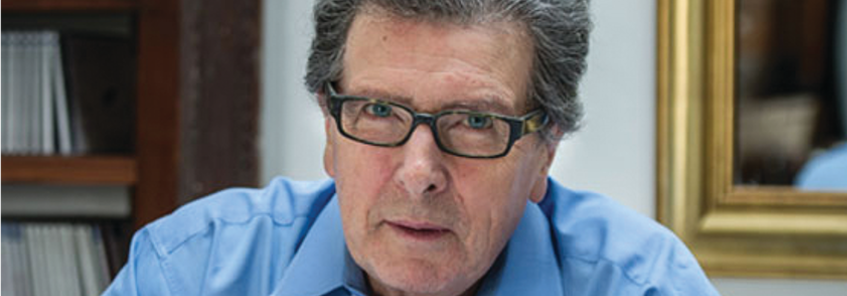Let’s get one thing clear. Howard Blake has written plenty besides the music to the The Snowman. The septuagenarian British composer reminds me of this himself in no uncertain terms when we speak; not that I need it: the Royal Philharmonic Orchestra is doing a good job of that already, having scheduled a concert this September devoted to Blake’s orchestral output.
Still, it is undoubtedly The Snowman for which Blake is best known. So I’m relieved when, after much stalling, and protestations of ‘I don’t want to do this over the phone’, Blake finally agrees to talk about the inspiration behind the 1982 Christmas TV classic. ‘I’d had this theory back when I was a student that you could write a film with music and without any words, and sustain the story that way,’ he explains. It was several years later though - in the early 1970s - that Blake dreamt up the tune for Walking in the Air, while living in a beach hut in Cornwall for two months to get away from it all. ‘I was walking along a long beach when this tune came into my head. So I wrote it down thinking it would be the start of a symphony,’ Instead the tune sat around for eleven years, until, by coincidence, Blake was shown a demo tape for a children’s film called The Snowman. ‘I looked at it and realised that my song would fit fantastically with this visual. That sparked the whole thing off... But I said I would only compose the music on condition that there was no dialogue.’
Contrary to what many might think, Blake wrote the whole score without once meeting Raymond Briggs, the creator of the original children’s picture book on which the film is based. And the two continue to hold different attitudes to the Snowman phenomenon. Briggs, who hates Christmas, allegedly refers to it as ‘the ’S’ word’, and wants little to do with it. Blake, meanwhile, is obviously proud of it. He seems disappointed at not being asked to write the music to the sequel The Snowman and Snowdog, of which he is no fan (‘I think ‘Dog’ is the operative word. It’s a terrible film’ he chortles) and emphasises that The Snowman is something of a ‘household work.’ Still, he says, ‘whenever I’m introduced anywhere, people say: ‘This is Howard Blake, who wrote The Snowman, as though that’s the only thing I’ve ever written.’
He compares this predicament to that of Beethoven, who, in his lifetime ‘was known for a long time for having written Für Elise,’ and Rachmaninov, ‘who was celebrated for his C Sharp Minor Prelude.’ Admittedly, Blake’s career path was not as clear-cut as theirs: he spent a while working as a film projectionist at the National Film Theatre. But his musical credentials are unassailable: he played the piano and sang from childhood, then, at the age of 18, won a scholarship to the Royal Academy of Music.
And, with an output of more than 650 works, he is nothing if not prolific. ‘Everything I write is melodic; i believe that the essential ingredient of all great music is melody.’Not a fan of Boulez then? ‘I’m an extreme enemy of Boulez,’ says Blake, ‘I’ve never met anyone in my life who actually listens to his music but I have read incessant articles about him being the world’s greatest composer. I’d like to say ‘prove it.’ He continues, ‘But the last laugh is with me at the moment. There are far more people who know Walking in the Air, than know a piece by Boulez.’
This helps to explain why, in 1994, Blake received an OBE for his services to music. And why he was commissioned to write a Piano Concerto celebrating Princess Diana’s 30th birthday in 1991. ‘It was a great honour for me. I set about writing a tune which summed up Princess Diana, that was cheerful and innocent like she was.’ Evidently the results went down well: after the performance, Blake was invited up to the royal box to drink champagne with the princess. ‘She said she loved it. And actually, it was never known that her grandmother was a concert pianist, and Diana herself was quite a good pianist; in fact she could play a chunk of Rachmaninov’s 2nd Piano Concerto.’ He continues, ‘so when she said she enjoyed my Piano Concerto, that wasn’t some bimbo who went to discos. That was someone who played Rachmaninov.’
The Piano Concerto is one of the works that will feature in the RPO’s concert this September, marking 20 years since Diana’s death. There is one work, however, that Blake is itching to have performed in the UK: namely The Station, his 1991 chamber opera for five singers and two tea ladies. ‘It’s about waiting for trains that never come in, and it’s a super, very funny little opera. But I’ve never managed to get to know anybody in the opera world ever, so it’s rarely performed.’ Let’s hope that this upcoming RPO concert will convince music lovers that, when it comes to Blake’s compositions, a revival of interest is overdue.
Written by Hannah Nepil

